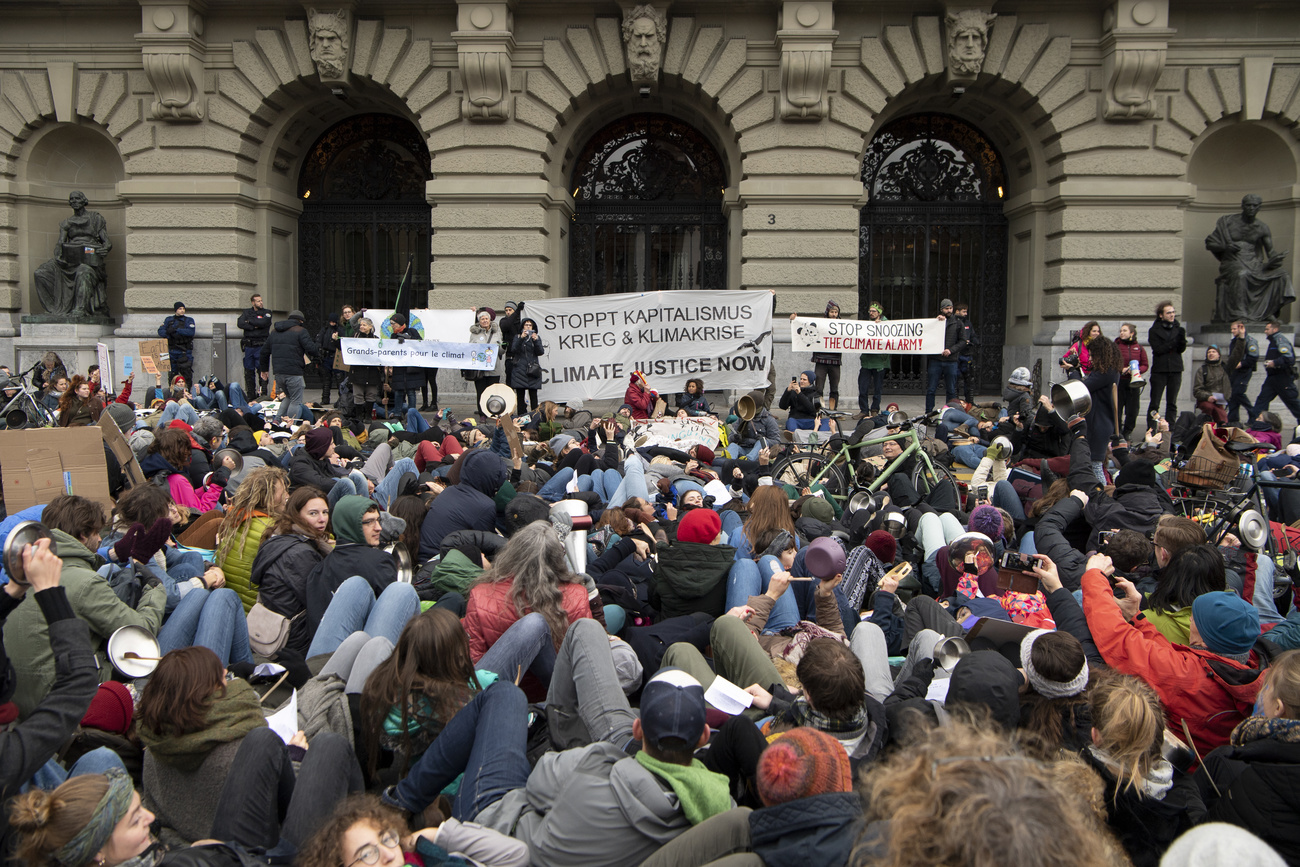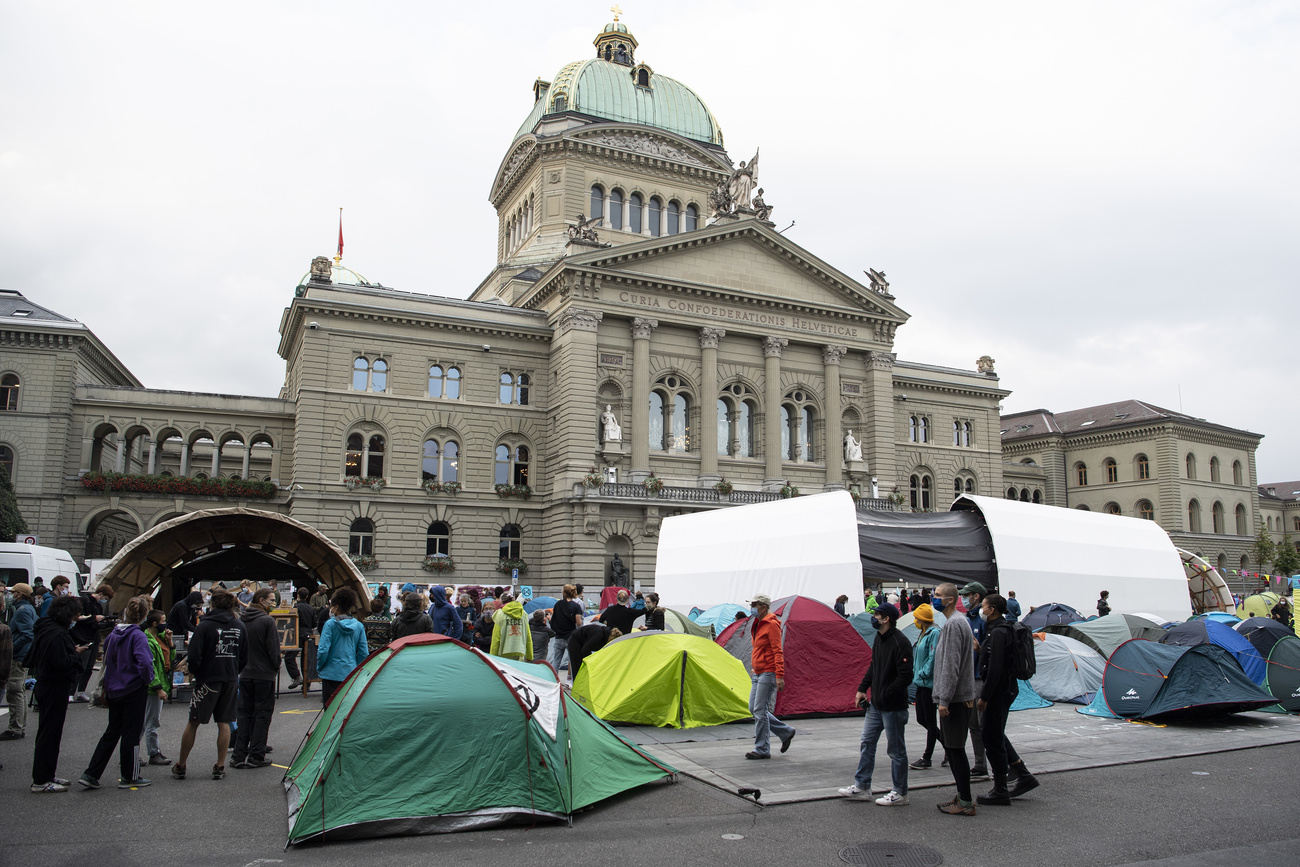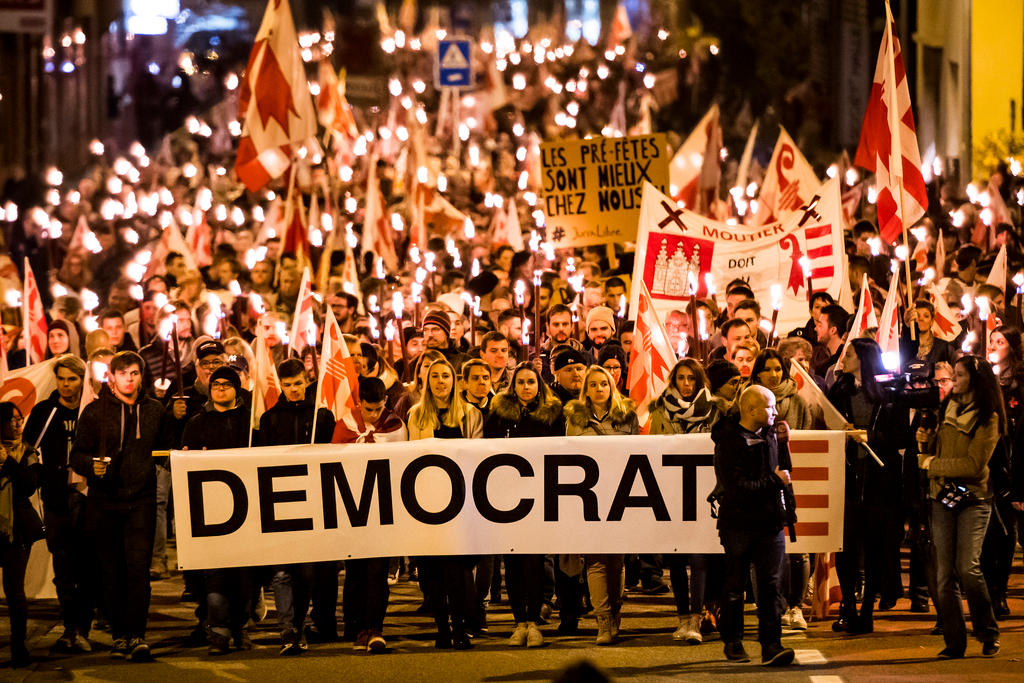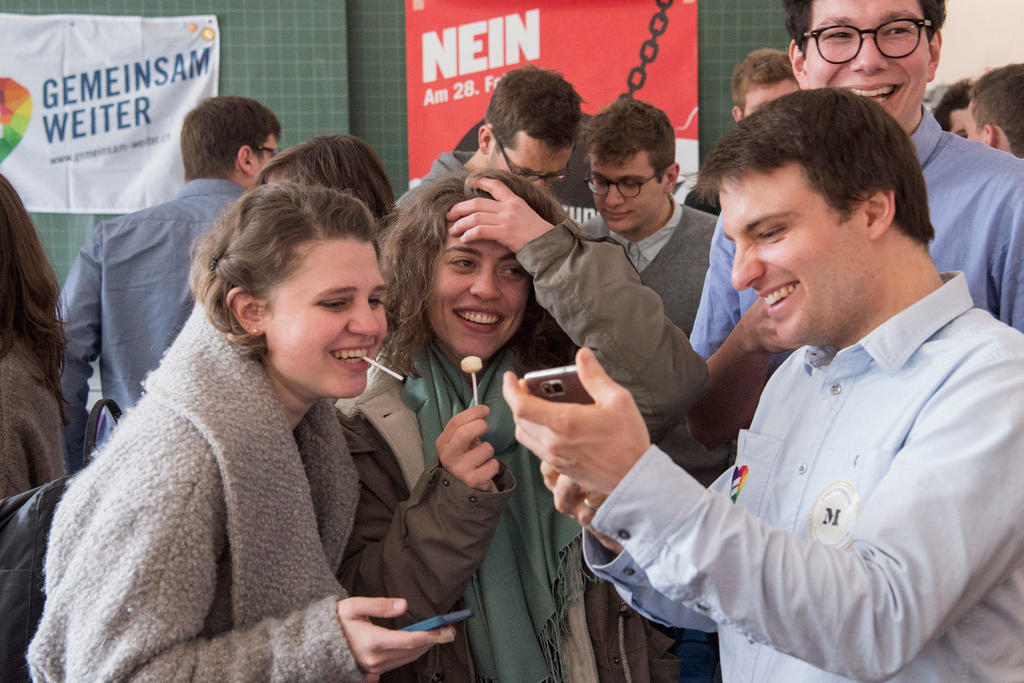How do you get Swiss youngsters to vote?

Although the legal voting age in Switzerland is 18 and has been since 1991, political participation of people aged 18-24 is still low. Only one-third of them go to the polls, similar to trends in other countries, with the exception of Austria and Australia. What’s the secret to attracting young people to the ballot box?
Young climate change protesters are back on the streets. In late September, they made their voices heard in places as varied as Argentina, Kenya, New Zealand and Switzerland with a single message for politicians: “You are far too slow. Do something about climate change!”
Last month in the Swiss capital, Bern, young climate activists camped in front of the parliament building in an act of civil disobedience while parliamentarians were meeting inside. Under Swiss law it is illegal to stage political protests on the main square while parliament is in session. The demonstration went on for three days before police removed the protesters.
In recent times, climate campaigners, inspired by people like Sweden’s teen activist Greta Thunberg, have been spearheading the younger more politically minded generations. These are youngsters who are politically active, but also selective, targeting issues like the climate that affect them directly.
Rift
The fact is, however, that young activists tend to fight their political battles in public, taking to the streets rather than voting in referendums or elections, launching initiatives or joining a political party.
This shows a real divide between politically active young people on the one hand and institutional democracy on the other. And surprisingly, Swiss youngsters do not believe lowering the voting age to 16 is a priority.
Data on participation in the 2019 parliamentary elections also bear out this divide: only 33% of those under 25 voted. Turnout among voters aged 65-74 was nearly double that, at 62%. Overall turnout was 45.1%.
For a quarter of a century, voter participation among the under-25s has hovered around one-third. One exception was the 1995 elections, when for the first time 18-year-olds could vote – yet only 22% of people under 25 turned out. Their highest participation to date was in the 2003 general elections, when 35% of them cast their ballot.
Lamenting the lack of political interest
Most Swiss parliamentarians regret young generations’ general lack of interest in politics. Yet in the past politicians have rejected efforts to strengthen political education in schools – largely considered the best way to teach young people the value of actively participating in democracy – leaving it instead to the government.
Due to its federal system, political education in Switzerland is a patchwork at best. In most cantons, it is taught alongside “civic education”, a subject that only finds its way to the classrooms once a week.
The low turnout among the younger generation is a contradiction of sorts. Depending on the issue, they can be highly engaged, but have not found their place in traditional democratic institutions.
Yet this contradiction is only superficial.
To vote or not to vote?
“We have to stop making voting the pinnacle of democratic participation,” said one middle-school teacher at a recent event in Bern dubbed “From the Street to the Ballot Box”.
Such a change in perspective could lead to a paradigm shift. Under the Swiss system of direct democracy, voting is an important act in the decision-making process used to resolving important issues.
Apart from voting, there are many other ways to participate in politics, but most of these are still largely unknown to Swiss politicians. One form of delegative democracy is “liquid democracy”, a system in which voters can either vote on issues themselves or turn their vote over to a personal proxy. This aims to widen access to people who have political demands but who are not attracted to more traditional democratic channels. Indeed, this way of encouraging participation could well appeal to climate activists.
“Liquid democracy” has been around in some other countries for many years. In Taiwan, for example, teenagers can participate in the political agenda via digital platforms. If they collect 5,000 signatures on an issue that concerns them, their “voice” is added to the political agenda and implemented by all stakeholders, even though they are minors.
Courageous neighbours
Whether you live in Scandinavia, North Africa, Latin America or Asia, many countries face a similar conundrum when it comes to participation.
But Switzerland’s eastern neighbour, Austria, suggests that things can be different. In 2007, Austria became the first European country to lower the legal voting age to 16 for all federal, cantonal and communal elections. It got off to a spectacular start in 2008 when 88% of 16- and 17-year-olds voted in the general election. By 2013, turnout for this age group was still a healthy 63%, while participation for 18-25 year-olds stood at 59%.
Apart from these figures on participation, studies have pointed towards a long-term sustainable change. Many youngsters who participate in politics view it as an important social act, a kind of democratic rite of passage, where they are taken seriously.
But beyond lowering the voting age, the situation in Austria has not progressed that much, and ideas such as “liquid democracy” are not well known. The Alpine country does not seem to lend much importance to the teaching of political education.
“Political education is a specialised subject taught to apprentices in vocational schools, and is just a teaching principle in other Austrian schools,” said Sylvia Kritzinger, professor at the Faculty of Social Sciences at the University of Vienna.
Compulsory voting – a product from WWI
Meanwhile, Australia is taking a completely different route: every Australian citizen over the age of 18 is obliged to vote in general elections. Consequently, turnout is usually higher than 90%. “Participation of the under 25-year-olds is 86%, more or less at the same level,” says Zareh Ghazarian, a senior lecturer in politics and international relations at Monash University in Melbourne. The Australian Electoral Commission (AEC) has set a target of 80% for this age group.
Compulsory voting dates back to World War One, when many Australian soldiers lost their lives, causing huge losses in the voting population. In Australia, anyone who doesn’t vote must pay a fine of $80 Australian dollars (CHF52).
But when it comes to political education, Australia does not fare much better than Switzerland. Even though the AEC invests a great deal of money in political education, it remains a colourful federal patchwork.
“While political education is a stand-alone subject in some states, it is taught alongside other subjects such as English in others,” explained Jacqueline Laughland-Booy from the Australian Catholic University in Brisbane.
At the cantonal level
Glarus is the only Swiss canton with a voting age of 16, which was introduced in 2007. There are no records of how many young people in Glarus actually go to the polls. But officials agree that the average age of people joining the so-called Landsgemeinde* has dropped noticeably. Lowering the voting age has also been an issue in cantons Bern, Lucerne, Zurich and Zug. In February 2020, voters in canton Neuchâtel rejected such a move.
*Glarus and Appenzell Inner Rhodes are the only two cantons that have retained this tradition whereby all registered electors are invited once a year to assemble at an open air meeting to elect their government via a show of hands.
At the national level
On September 10, 2020, the House of Representatives accepted a parliamentary initiative calling for the national voting age to be lowered to 16. This was against the recommendation of an advisory committee. If the Senate agrees, parliament will prepare a draft bill.

In compliance with the JTI standards
More: SWI swissinfo.ch certified by the Journalism Trust Initiative














You can find an overview of ongoing debates with our journalists here . Please join us!
If you want to start a conversation about a topic raised in this article or want to report factual errors, email us at english@swissinfo.ch.